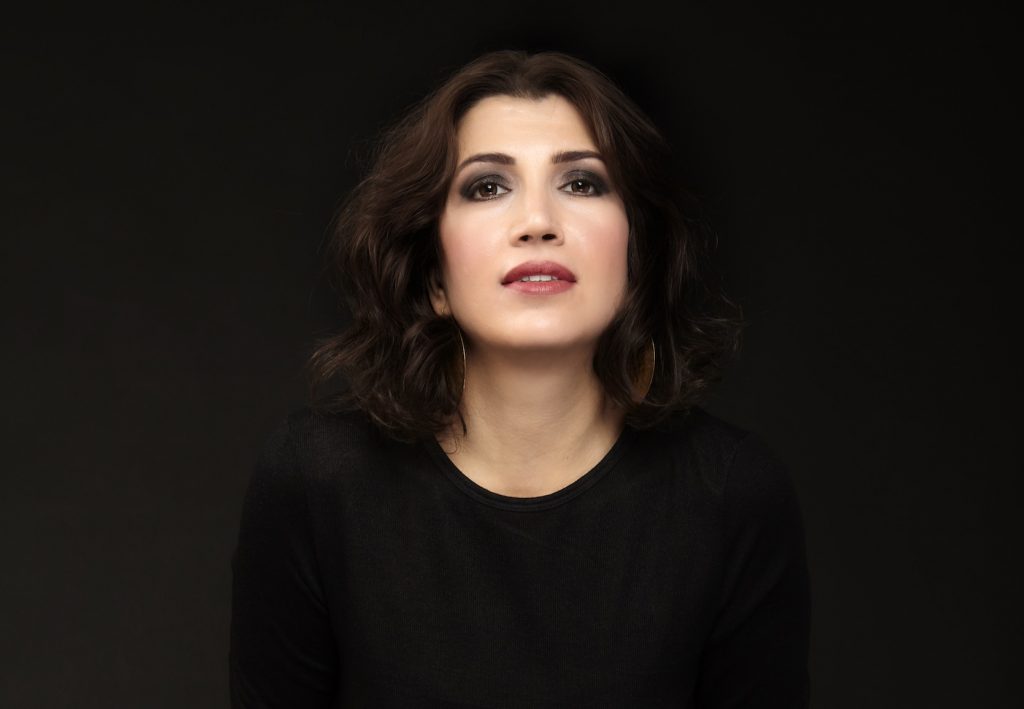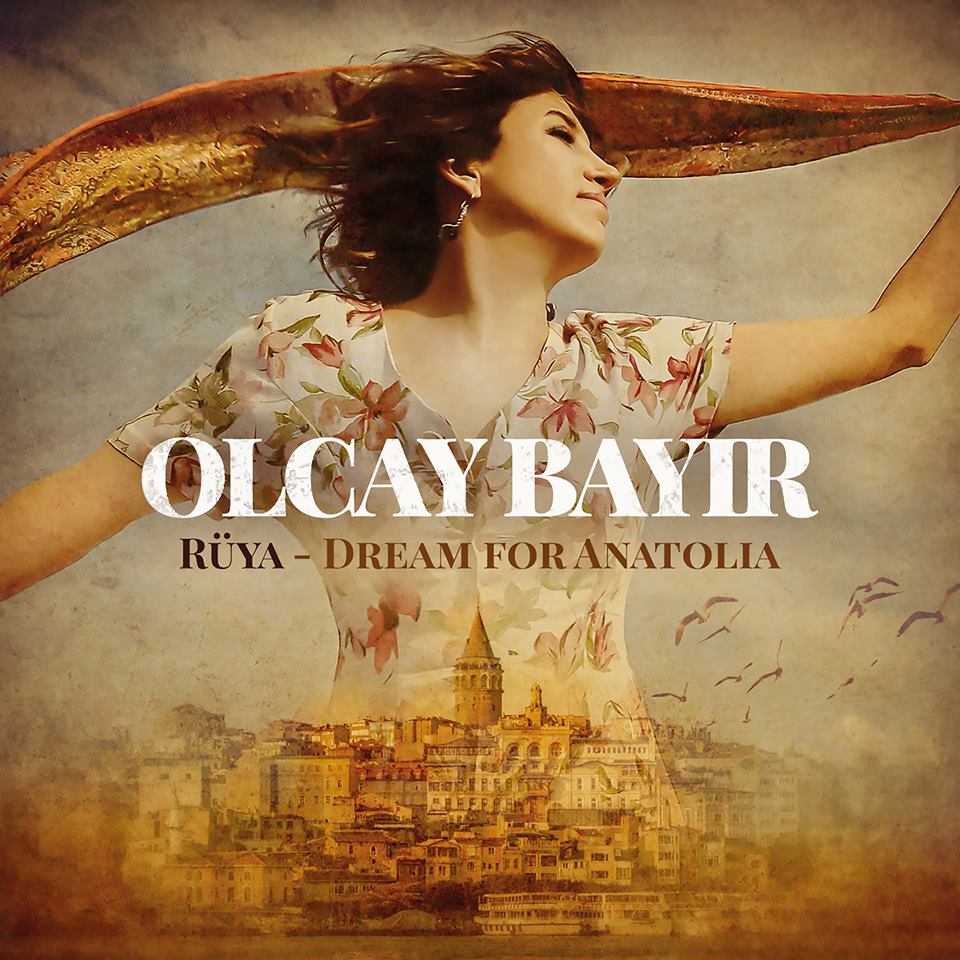Blessed with a heavenly voice, Olcay Bayır has been singing for as long as she can remember. She was born in Gaziantep to a Kurdish Alevi family steeped in the âşık (wandering minstrels) tradition, and her career as a classically-trained singer-songwriter is a perfect marriage of her roots and global music experiences following her move to London aged sixteen. Here she gives T‑VINE insights into her world following the release earlier this year of her second album Rüya – Dream for Anatolia.
Tell us about your family and childhood.
I’m the fifth of six children: I have three sisters and two brothers. Dad was a road-builder, so we moved around a lot with his work. I’ve lived in Mersin, Kirikkale and İzmit.
Did you always want to be a singer?
Yes. I have been singing since I knew myself. My earliest memory [of singing] is at the age of about 5 years old. I was given the opportunity to receive classical training after I came to Britain. It was not necessarily a personal choice, but I am really happy that I studied it because that discipline improved my vocal technique, and expanded my music theory and perspective as a musician. During my studies, I was also writing songs and producing music. I knew I was going to carry on doing my own music in the Anatolian folk style I feel so deeply. It was always in my mind.
How important is it for you to relate personally to what you sing about?
Very important. I should feel the song I sing. It is like clothes for me: I should fit in it, or adjust it to make it suit me by adding my own interpretation.
Rüya [Dream] – the title track of Olcay Bayır’s new album
What role does Alevism play in your life and art?
Alevism is a way of living; a belief system that has a strong bond to every aspect of our life, including music. It plays a huge role really.
Where is home now, what do you love most about the city and what do you miss about Turkey?
I live in North London, around Finsbury Park. The best thing about the city is its diversity and the opportunities it offers. You can access any kind of music and meet musicians from pretty much all over the world. It is like a miniature world here. I do miss my friends and extended family in Turkey though.
Where are your favourite places?
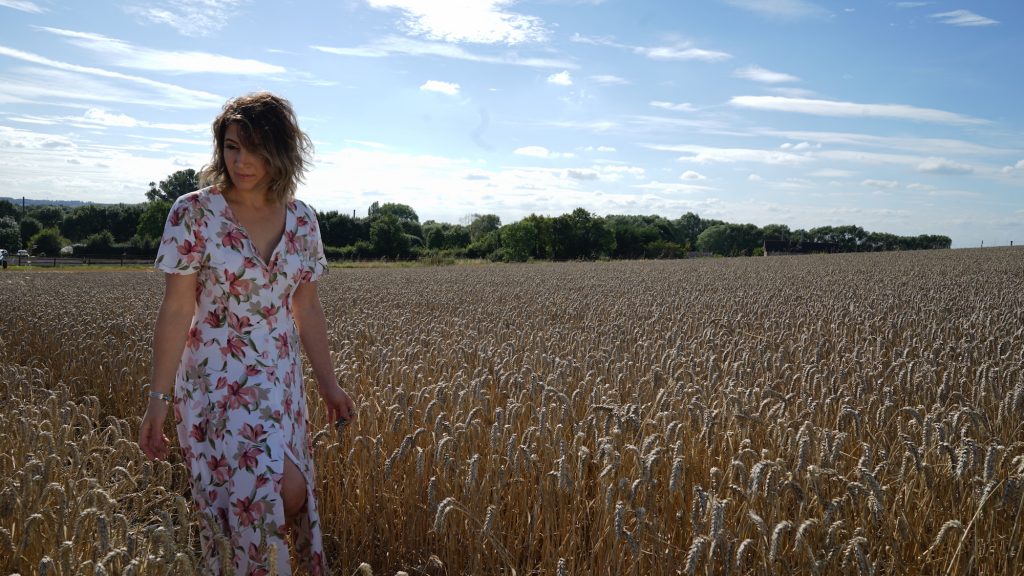
I really love Scotland because of its nature, mountains and hills. And I really love western Turkey, with its Mediterranean culture and sea.
Tell us about a typical day in the life of Olcay Bayır.
I am a full-time musician. I am also a qualified music teacher. I teach music to small children on some days of the week. On a typical day, I wake up early, and do a little meditation. I check the news in the morning while having my coffee. Then I catch up with various tasks: emails, arrangements, etc. Afterwards, I go to work, which could include studying or teaching music during the day. In the evening, I try to socialise; I like to go out to see a concert or see a play at the theatre. Or, if I stay home, I read a book, or watch something on television.
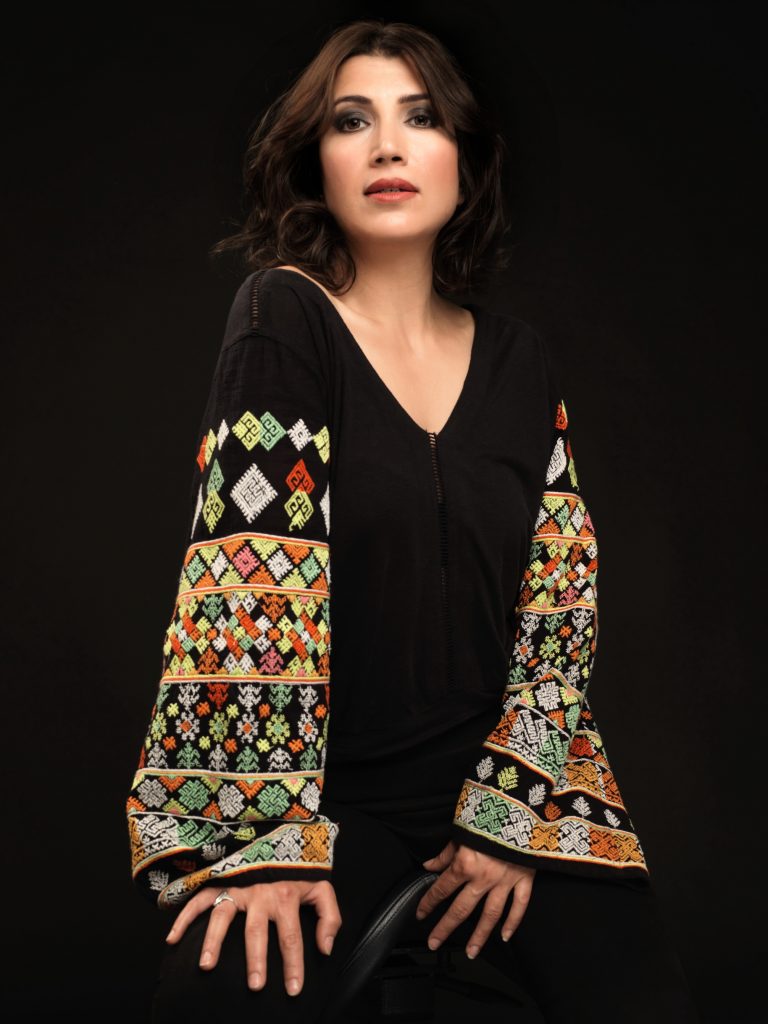
Have you ever been tempted to stop music or to try your hand at more commercial stuff?
I have not. I believe we must do what we love to do most in life.
How does your new album Rüya compare to your debut release Neva?
Rüya is a very different album to Neva. The only similarity is Rüya also has a strong sense of Anatolian root music. But the musicians who played on Rüya are different, the record label is different – I released Rüya on ARC Music. Most of the songs on the album are my compositions. And most importantly, the musical approach is distinct from Neva. Rüya has a more international, eclectic sound defined by fresher musical attitudes. The instruments we used on the album also vary.
What are you most proud of about this new recording?
That my song-writing ability is appreciated. This is really special for me and very encouraging as an artist, so I am really happy about it. I am also proud of the musicians that I worked with on this album and my producers [Al MacSween and Guiliano Modarelli of Kefaya].
Your album title says, ‘dream for Anatolia’. Explain why.
Anatolia is a melting pot of many cultures. It has a very old history. It is also on the Silk Road, which makes it even more interesting and unique. All these different influences from different cultures that amalgamate to create their own shapes and unique forms. It is reflected in everything that is from this amazing region.
What is your most memorable achievement to date?
My proudest moment was hearing a cover of my song Yar Dedi. It made me cry when I heard others sing it for the first time. It was a very special moment for me.
Where next for you as an artist? Any plans for a collaboration?
I want my music to reach as many as people possible. I want to keep writing and performing my own songs and connect with different audiences. I haven’t collaborated with any famous artist, but I would really like to share the stage with [Tunisian singer and oud player] Dhafer Youssef.
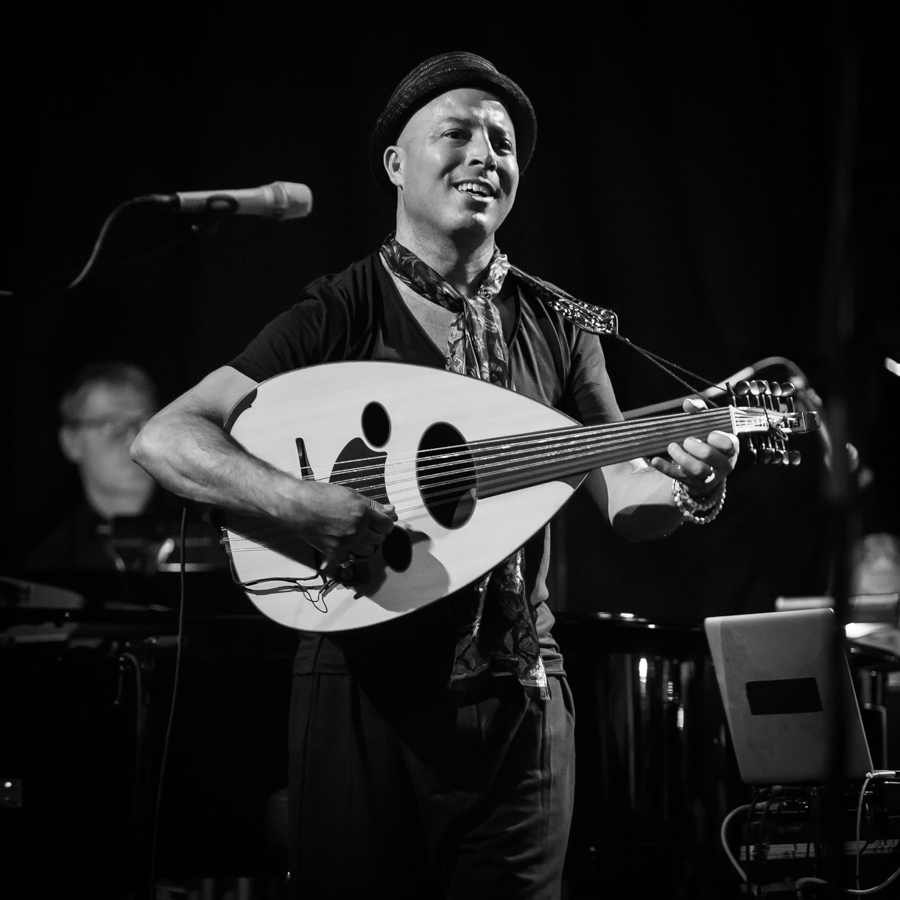
Is there anything else we should know about your world?
I think your questions cover pretty much everything. Thanks a lot for talking to me.
Rüya – Dream for Anatolia is out now on ARC Records and is also available on Spotify. Look out for Olcay’s UK tour in the autumn: olcaybayir.com
This article was first published in T-VINE Issue 11, earlier this year.

